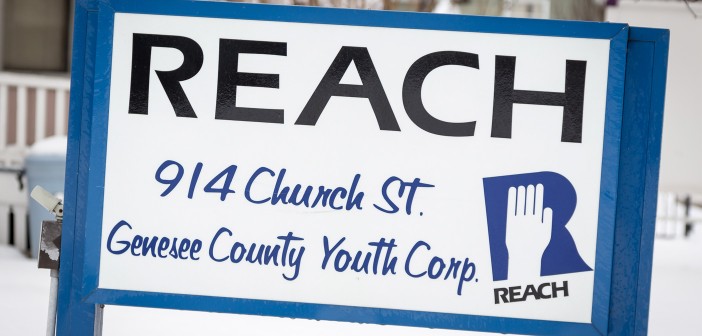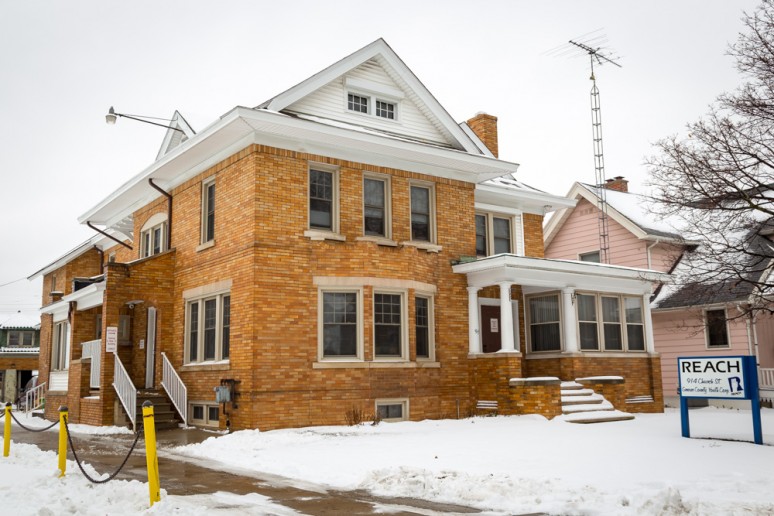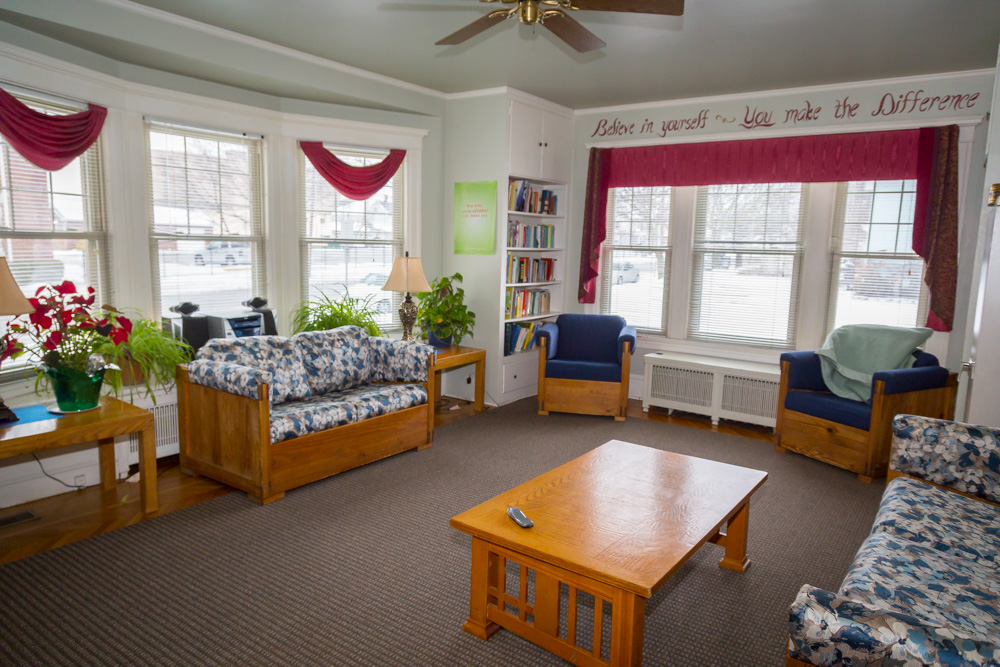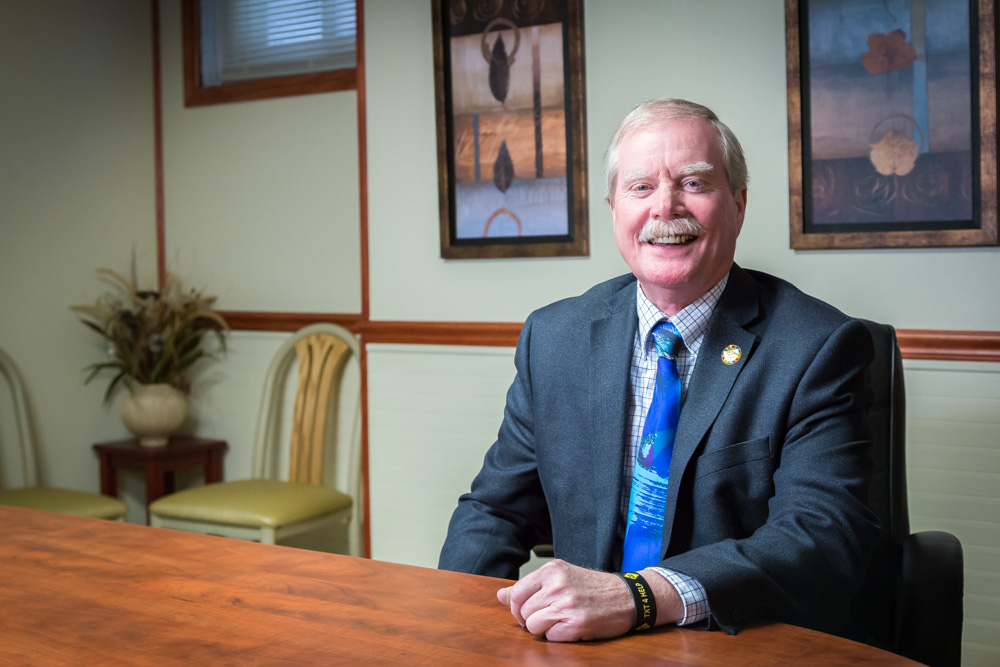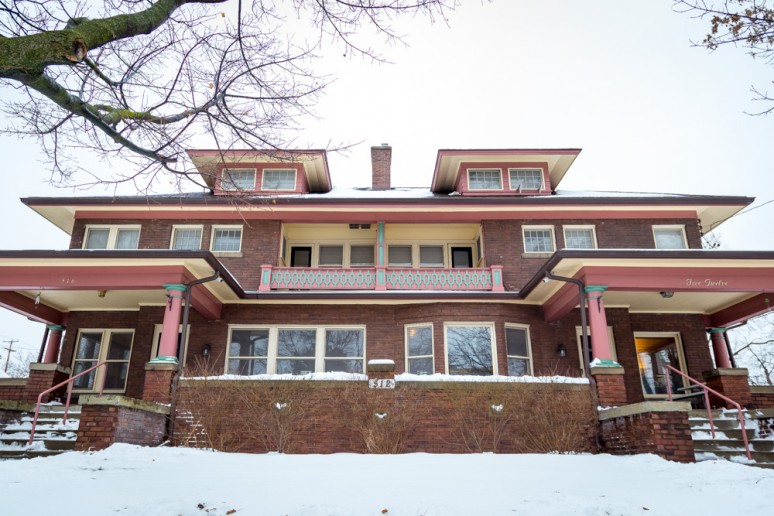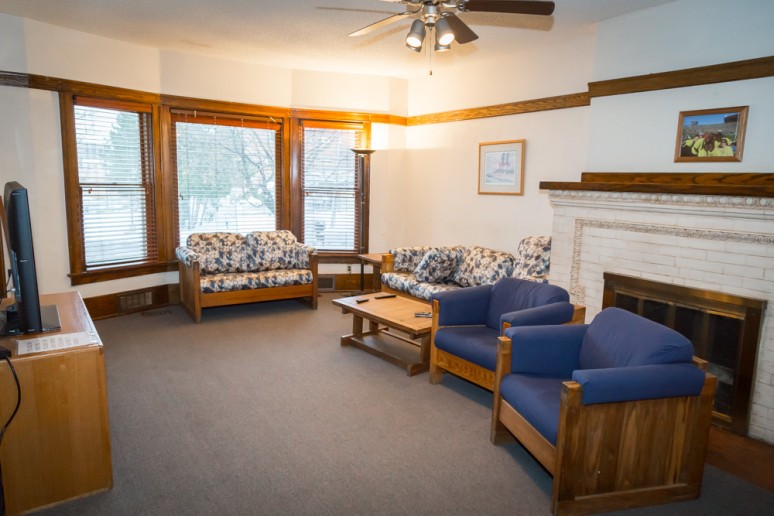The number of homeless youth in Genesee County is staggering. The total count for homeless children in Flint/Genesee County equals 699: 651 of the them are with their families and the remaining 48 are unaccompanied.* Through REACH and Traverse Place, kids and families are getting the assistance they need to lead successful, fulfilling lives.
REACH
In 1977, the REACH agency was founded to address a growing problem with runaway youth. Its mission is to help families in crisis, and offer safe housing to young people who run away from home.
During its inception, representatives from area schools, probate court, law enforcement, community agencies, clergy, and young people met to establish the agency. This taskforce agreed on a mission: to preserve, assist, and reunite families whenever possible; to offer a community-based alternative to the juvenile justice, or court process, for runaway youth; to provide safe, secure, short-term shelter for runaways; and to assist young people in identifying and using other appropriate community services.
Services are available to any youth, ages 10 to 17, offering shelter for up to 21 days. Their ten-bed facility includes crisis intervention services, individual and family counseling, voluntary shelter available 24/7, family reunification and resource assistance. Services are free to everyone, and parental permission is required for youth to stay at the facility.
Caption: “Kids like coming here because they know they’re safe,
but they also have other kids they can relate to.”
Robert Edgar, Executive Director
REACH has been at its current location on Church St. in Flint since 1981, and in that same year, the agency secured federal funding and became an independent program. They eventually expanded their services to Lapeer and Shiawassee Counties. Michigan is ranked fifth in the U.S. and first in the Midwest for number of homeless residents.* To further extend their services, REACH belongs to a statewide network of special agencies which offer alternatives to street life for runaways throughout Michigan.
Executive Director, Robert Edgar, has been with the agency since 1978, serving as a counselor and casework supervisor, and was appointed executive director in 1987. He now oversees REACH, Traverse Place and their Street Outreach team.
“The majority of families express a need for intervention with crises at home or at school, and with substance abuse,” Edgar says. “A lot of the times, it starts with a phone call. They need someone to bring them together and try to resolve the conflict.”
Now, REACH is governed by the Genesee County Youth Corporation Board of Directors, receiving financial support from the U.S. Department of Health and Human Services Housing and Urban Development, Michigan Department of Human Services, Michigan State Housing & Development Authority, the United Way of Genesee County, the City of Flint, Genesee County, Lapeer County, and private donations.
From 1977 through 2015, 82 percent of youth returned home from the shelter. From 2005 through 2015, 97 percent of their crisis contacts were resolved, 98 percent of families served reported that the services were beneficial, and 96 percent report that they would refer someone to REACH.
Most referrals for the services come from police departments, the courts, schools or parents. “That’s really what it’s for: some good separation time – a time out – and reassurance for the parents that the kids are safe,” Edgar says. “This allows them to breathe easy, and they can concentrate on the issues that brought them here, not avoid them.” The three counselors on staff, who have master’s level degrees, are patient and go-with-the-flow, as they are always working with crises. Their goal is always reunification, at some point, for the families.
“Kids like coming here because they know they’re safe, but they also have other kids they can relate to,” Edgar says. “They don’t feel like they’re the only one having these kinds of issues. Sometimes, kids helping kids is one of the best things you could have.”
Traverse Place
Once Edgar and the rest of the REACH team realized that many local youths don’t have homes to go back to, the Traverse Place program and residence came to fruition. The 21-month program to empower homeless young adults, ages 17 to 21, encourages the residents to take control of their lives in positive and purposeful ways, to become independent, self-sufficient, and empowered.
Located on Grand Traverse St. in Flint, the house has nine beds, and is divided into two areas for a co-ed living situation, which is perfect for group meetings, but also allows some privacy. Currently, it is occupied at capacity, with a wait list of just as many.
Traverse Place began taking residents in 1998, but in 1996, the Genesee County Youth Corporation began acquiring funds through the U.S. Department of Housing and Urban Development (HUD), Michigan State Housing and Development Authority (MSHDA), Genesee County and the City of Flint.
This program offers a continuum of care to its residents. The services include offering safe and stable housing, assisting youth in developing life skills to live independently, education, information and/or counseling to reduce substance abuse, referrals and access to medical and mental health treatment, preparation for obtaining employment, opportunity for educational advancement or vocational training, and community service opportunities.
Residents are required to attend school if they have not yet graduated or earned a GED, obtain employment, and put at least 60 percent of their income into a bank account. They must also follow house rules: do chores, abide by curfew, be substance free and non-violent, and attend Life Skills training.
Most youth who come to Traverse Place are 18 years old and leaving foster care arrangements. Sometimes, they are unsuccessful at living on their own and simply need help getting back on their feet. Many haven’t finished school and have no work experience.
“They don’t have very many successes to rely on, so when they come in, they’re looking for a safe place to start,” Edgar shares.
On a resident’s first day there, the Traverse Place staff are already talking about exit plans and what the resident wants to accomplish. They encourage making small steps toward goals, such as getting them proper identification, health care, employment, school, and a bank savings account. Medical care, clothing and other accommodations are provided free at Traverse Place, enabling residents to save money for their futures.
“The longer a resident stays, the more life skills they learn and the more money they can save,” Edgar explains. The staff makes the house feel like a home, with provisions when residents arrive and a care package when they’re ready to leave. They even help them along the way once they’ve moved out.
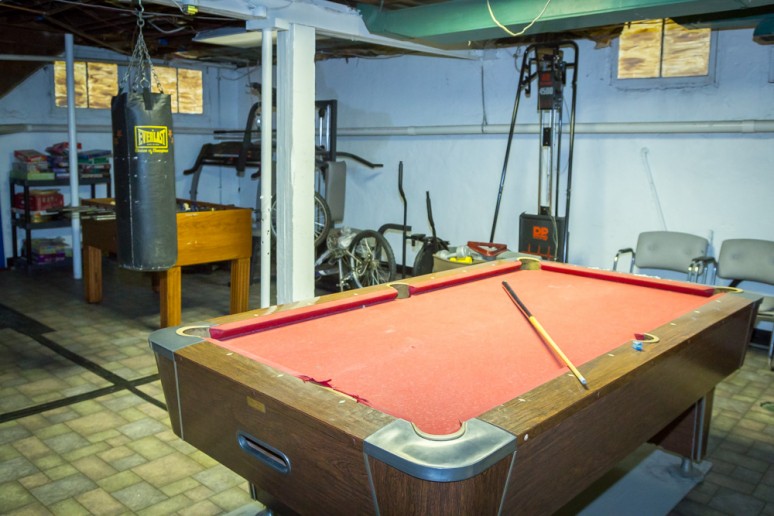 And it truly is a home-like situation for many residents – current and past. Each year, they host a holiday potluck meal and invite current and past residents who come from far and wide to visit.
And it truly is a home-like situation for many residents – current and past. Each year, they host a holiday potluck meal and invite current and past residents who come from far and wide to visit.
“I am pleased we were able to maintain the program and expand it with Traverse Place,” Edgar says. “That was an instrumental thing for us; we really wanted that program. We’ve been really lucky with our grants and being able to hire more staff.”
This month, REACH celebrates its 40th anniversary; Traverse Place is celebrating its 19th. If you are interested in making a donation or contributing to the program’s wish list, you can visit Reach-TraversePlace.org.
*Sources: The Campaign to End Homelessness, Metro Community Development

